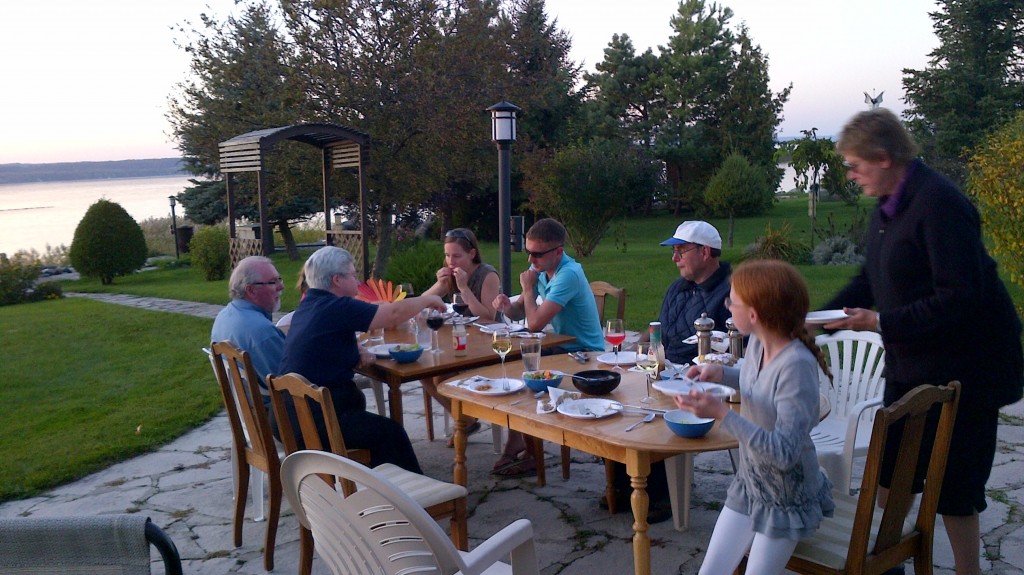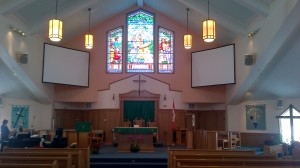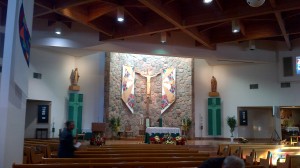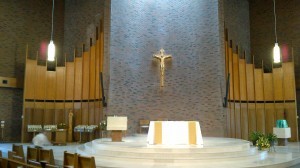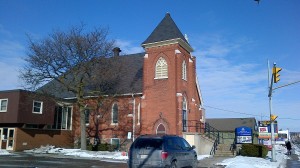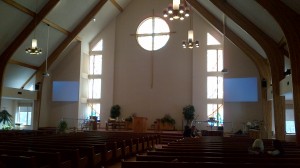 When I told my daughter I’d visited the ‘First Christian Reformed’ church on Sunday, she asked me if it really was the first ever Christian church. I told her that, no, despite the name, it wasn’t.
When I told my daughter I’d visited the ‘First Christian Reformed’ church on Sunday, she asked me if it really was the first ever Christian church. I told her that, no, despite the name, it wasn’t.
However, it is a warm, friendly congregation. Unlike some places I’ve been where I’ve been able to stand around at coffee hour for twenty minutes without anyone talking to me, at this church three or four people had introduced themselves to me, got me a coffee, and started to get to know me before the service had even started. So full marks for hospitality!
This is another of Barrie’s larger churches, with several hundred people in the Sunday morning service. The format is very typically Evangelical. We sung several songs accompanied by a small band, there were announcements, a short message for the children, a brief prayer, and a thirty minute sermon.
I’ve found myself asking recently when and why the sermon replaced communion as the central sacrament of the Protestant church. I’m sure no Catholic would feel that they had really ‘gone to church’ if Mass had not been celebrated. And likewise, I suspect an Evangelical feels that they have not ‘gone to church’ unless they have heard a sermon.
It may not formally be referred to as a sacrament, but it certainly gets treated like one. It’s clear to a casual visitor of this church that the sermon is the main point of both the Sunday morning meeting and, in fact, the entire building. Just as an Anglican or Catholic church has as an altar as its focal point, this church clearly is centered around the pulpit.
I’m fairly sure that the point of the ritual of the sermon is about more than simple information transfer. This is not just about educating a congregation. Not least, there are clearly more efficient ways to transfer information. You could read the texts for 52 sermons in a few hours on the first day of January. And there are certainly more effective ways to transfer information. Any decent degree program complements its lectures with tutorials to discuss the material, with practicals to investigate the subject first hand, and with exams to monitor progress.
As far as I know, most churches don’t have a formal curriculum, nor any way of assessing student progress, so I really don’t think that the point of a sermon is fundamentally about education. And indeed, as I’ve been asking people on this journey why they go to church, I’ve rarely heard the answer ‘to hear a sermon’.
And yet we construct buildings, hire staff, and organise services largely in order to deliver sermons. I can only assume that this is because we believe that sermons do, in fact, have some kind of sacramental value. That maybe people are influenced in some spiritual way by the act of sitting in a chair and listening to somebody talk for thirty minutes. And that this has to happen on a consistent, weekly basis to have the desired effect.
Understand that this is a general question, and not a criticism of First Christian Reformed church. Pastor Mike Borgert gave an engaging message on Mark 1:29-34, although he somehow managed to talk for thirty minutes about a four-verse passage that includes multiple healings and exorcisms without really talking about the supernatural elements of the story at all.
But my question remains – why the centrality of the sermon? When did this become the focal point of ‘doing church’? And what are we fundamentally trying to achieve?
